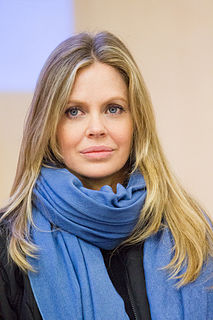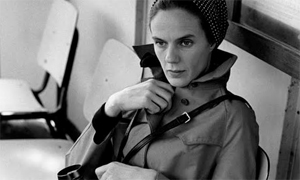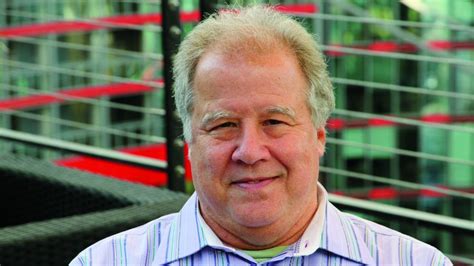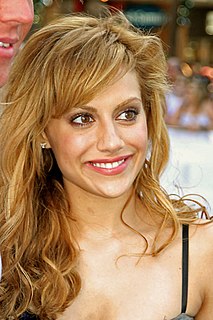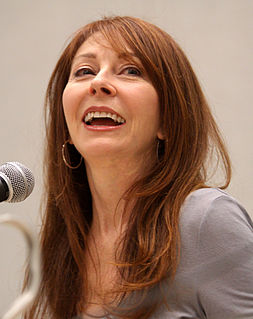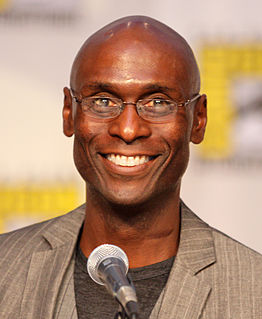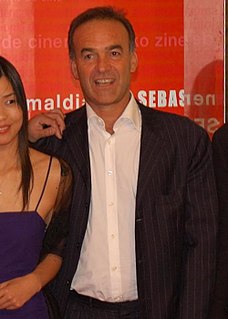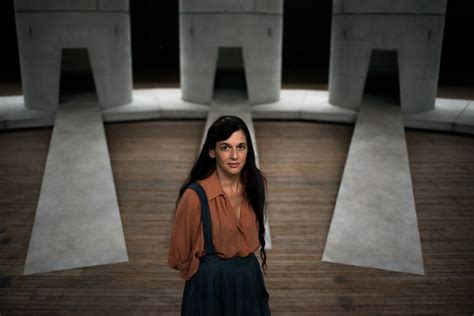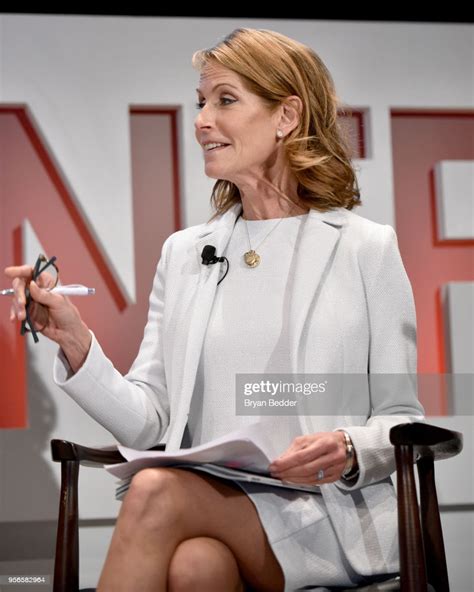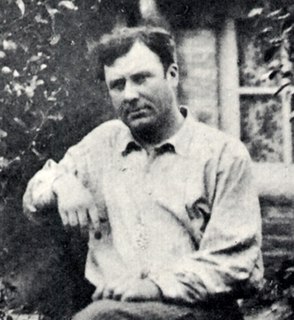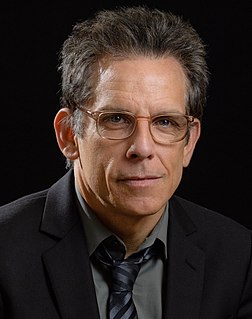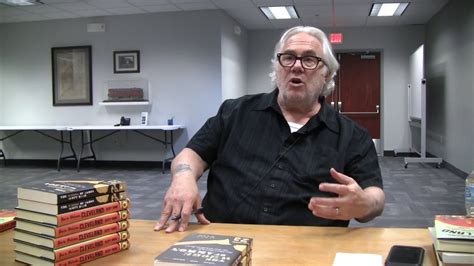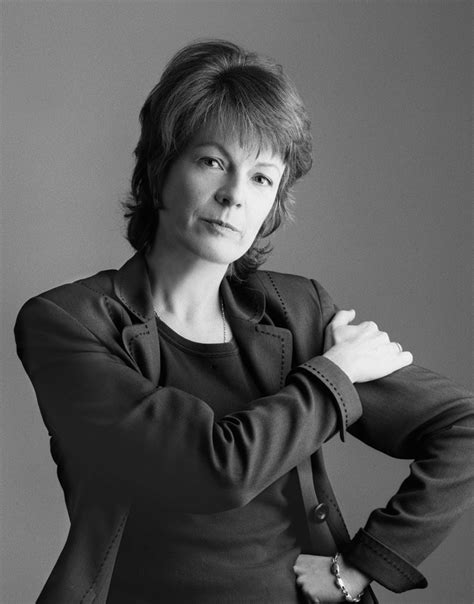Top 786 Documentary Quotes & Sayings - Page 13
Explore popular Documentary quotes.
Last updated on December 22, 2024.
Art and the triumph of the human spirit - the two combined thrill me. It's the "Braveheart" moment, the stuff Joseph Campbell talks about, "the heroes journey," a beautiful documentary on a poignant topic, the fireman saving a kitten from a burning building. It's the combo of heroism and kindness against the odds or even good reason. It implies immortality because it is the domain of the soul. That evidence of the spirit of life is what makes me get out of bed in the morning.
I'm a curious guy. I can't turn away from an investigative story, when it comes to the forensic analysis. I've done 33 dives, to the titanic wreck site. I've spent over 50 hours piloting robotic vehicles at that wreck trying to piece together what happened during the disaster. How the ship broke up, comparing the historical record with the forensic record. Documentaries are kind of my new life. I love documentary filmmaking.
I am a director and I think actually they're not that different - dramas and docs aren't that different. When I'm doing a drama I'm trying to make things feel as believable and real as possible. The hair, the make-up, the costume, the design, you're trying to make it authentic. And when you've got a documentary it's all authentic, so what story are you going to tell and how do you make it dramatic and exciting? It's the same thing.
I think the Republicans and conservatives generally were alienated by America's unsuccessful effort in Vietnam, and a lot of them, as Henry Kissinger admitted the other day, never got over President Nixon's impeachment, and didn't think, even though there was a pattern of illegal conduct there, sanctioned by the White House and proved by the tapes and other documentary evidence and testimony, they didn't believe that the impeachment was justified, and they didn't think he should have resigned.
I spent a year and a half working for an art fair. I worked as a post-production assistant for a documentary film company for a while. Then I worked at the Apple store because I wanted a discount to be able to buy new gear to edit things while I was figuring out whether or not I wanted to go to film school. Those were the main things.
There is so much investment in it of people's labor time that it will never make money. But there are other documentaries that you might make that are sort of on assignment for television that turn around in three to six months. Then the margin can be much be better for you because you're not spending three-and-a-half years on it. So I think if you're doing documentary films, that's sort of the way to look at it.
I'm doing quite a few things now. In one day, I will go to Kassel, Germany, for a documentary project I've been preparing for half a year. I will bring 1,001 Chinese to participate as my artwork there - any Chinese who is a Chinese passport holder and over eighteen years old could apply through my blog. I'm just bringing them to Kassel to see the art show, and pay their room and board.
I think everything can be painted because painting can change reality; but everything cannot be photographed and the photographer often comes home empty-handed, with images which (often) have a documentary interest, but which rarely go further than that. One has to be completely available, very tenacious and admit that many subjects won't give any results... and a miracle sometimes happens, without warning.
I would not even attempt to do a history of world television. I did a half dozen years where I was a juror at the Banff World Media Festival, and you get the best TV in the world there, and I was astounded at my ignorance. I would be watching a documentary made in Japan, and it was astounding, and I would never have heard of that otherwise. We're seeing more and more imports in the last years, and my dream for the next generation of TV is that somehow we get to tap into all of that.
I got a phone call from George Miller [the director] asking me to play this role. We sat down and he showed me on his computer a documentary-type montage sequence of real penguins swimming, in an Esther Williams synchronized sort of way, and doing things I have never seen them do. Then he explained his vision of the film, asked me to read the script and to voice the character. I was cast a little bit later, and he let me do the singing as well!
It's so easy to disappear into your character because there isn't all this fuss around you, and we keep a closed set, and closed off to all crew members, even, unless we're cut. A lot of times, you're doing a scene in a movie and there are literally 35 people standing behind the camera all waiting to do their job, but here they have to be off the stage. On The Office, it is very much just the actors, a cameraman and a boom operator, like a real documentary, like we really are being documented.
I'm driving down the freeway the other day, on my way to Knott's Scary Farm probably, and I hear this report on NPR that the whole lemmings thing was faked in the 1950s. They were shooting a wildlife documentary in the '50s, they found a group of lemmings, and the crew chased them all off a cliff. No lemming has ever jumped off a cliff, purposefully, ever. Isn't that unbelievable?
Recently, while I was in England, I saw a documentary on the BBC about the border between India and Pakistan at Wagah. When the border closes each evening around six o' clock, the soldiers on each side do these amazing high-stepping peacock march-offs (like a dance-off). The displays are almost identical on each side and thousands gather to watch them. Though they're patrolling along their separate borders, what comes across is how similar they are.
I'm ready for all forms of dialogue about the film The Conquest. There will be a lot of political talk, but I don't think the film itself will be scandalous. For the French, there are so many emotions relating to Sarkozy and politicians in general that I think the film will generate a lot of passion, whether it be negative or positive. Above all, it's a fictional film. It was important not to make a documentary and to really pay attention to the images. From the choice of the actors to the mise en scene, the film is completely cinematographic. It's not just a boring political movie.
Back in 2007, I met this white guy [director Peter Byck] with a lot of hair and a video camera, at a conference that I happened to be attending for the launch of an organization called Blacks in Green. I had never heard of him and Peter had never heard of me. We just started talking; he liked what I had to say, so he asked me if I'd be willing to be in this documentary he was doing about carbon pollution. I said, "Sure!" It was kind of a no-brainer.
With fiction, you are creating an imaginary world. And it can be a very mechanical process. In a fictional film, you create the characters who become "real people" when facing the camera. When you stop shooting, they change their costumes and become someone else. And people tend to believe in documentary more than fiction. Even if the fiction is based on a true story, everybody will say, "Oh, they're only actors."
That's what David Caruso said to me. We were talking about the whole Emmy thing, and he said that one of the things about awards in this town is that a lot is about the drama - like the drama of the performance. And he said "Your show, The Wire, looks so real, it almost looks like a documentary. And people who aren't artists - a lot of people who vote for this stuff - don't get it."
There are things that make me excited about what I'm doing: Trouble the Water [the 2008 documentary Glover executive produced] on New Orleans, or something like Soundtrack for a Revolution, about the power of the music of the civil rights movement [which he executive produced in 2009]. Or Bamako, about the African debt crisis, a platform to discuss the experience of people who actually live it. All of these are important ways we can use film as a forum inviting people into a dialogue.
You know so many documentaries now are very carefully scripted before you start, and then people are sort of put in chairs which are beautifully lit, and they tell their stories and you do that with another 10 people and you then construct a story from what they say. You do a sort of paper thing, and then you put some images in-between, and that's your film. And that's so not what I think is a good documentary. It can be so much more than that, it should be much more of an adventure and much more uncertain... like real things are.
Jimi Hendrix came on TV on this documentary and it was this African-American soulful black guy, playing an electric guitar, which I'd just started. And it just blew my head off. I had like an afro at the time, too. It was a bit all over the place. And it wasn't a thing to have an afro. No, that's kind of quite old school. You're supposed to have like a neatly cut shaped up haircut.
My wife made me watch this documentary about the Iraq War, and there was a really powerful moment where they followed some civilian whose family had been killed. This was 5 or 10 minutes of this woman talking, and it was extremely arresting. You realize how you never hear from the person on the receiving end of a war without a reporter stepping in to compartmentalize the story. Usually they're just a few shots at the end of a news report, wailing and screaming at a funeral.
I tried [being a mogul]. It bores me. I don't really want to produce other people's movies. Because they're either grown-up filmmakers like Steven Soderbergh or Kathryn Bigelow that didn't really need me - and I've produced both of them. It's fun to sit around with them and be collegial, but they don't need me. They can make the film without me. I make my own stuff. There are tons and tons of other things I'm interested in that have nothing to do with movies or are documentary projects.
He was, as Billy Name said in the acclaimed Ric Burns documentary about Andy Warhol, uninterested in being a second-tier artist. He was uninterested in being a first-tier artist! He wanted to be, you know, a god. Someone who completely changed the...he wanted to be Zeus with the lightning bolt and nothing less would have satisfied him.
Twenty to thirty years ago, who was making documentary films? Nobody. Well, relatively few people. It was an art form that had limited theatrical distribution, if any at all. Some television distribution, but relatively small audiences regardless. And in the intervening years it's become more and more popular with a lot of people.
Among other things, drag queens are living testimony to the way women used to want to be, the way some people still want them to be, and the way some women still actually want to be. Drags are ambulatory archives of ideal moviestar womanhood. They perform a documentary service, usually consecrating their lives to keeping the glittering alternative alive and available for (not-too-close) inspection.
I don't think a novel's main donation, main gift, is the document. The document is there, but a novel goes beyond documentation. It goes into opening a new vista, opening a new perspective, showing familiar things in an unfamiliar way, and making the reader reconsider the documentary facts which he or she may have known before.
A good print is really essential. I want to take strong documentary photographs that are as good technically as any of the best technical photographs, and as creative as any of the best fine-art photographs. [...] I don't want to just be a photo essayist; I'm more interested in single images...ones that I feel are good enough to stand on their own.
It's true, there aren't many explicit references to Canada in my book. And not many explicit references to the U.S., either. I try to fill my poems with enough real, observed detail that the poems create a believable world - but I don't write poems for the sake of telling my own story. My life is not important or interesting enough to warrant that kind of documentary. Instead I try to use my experience as a way of understanding situations that are common to many people. I want readers to project their own lives onto my poems.
Day by day and almost minute by minute the past was brought up to date. In this way every prediction made by the Party could be shown by documentary evidence to have been correct; nor was any item of news, or any expression of opinion, which conflicted with the needs of the moment, ever allowed to remain on record. All history was a palimpsest, scraped clean and reinscribed exactly as often as was necessary.
Documentary photography is becoming more illustrative as people become more familiar with photography’s limitations and vulnerabilities. Reality has always been interpreted through layers of manipulation, abstraction, and intervention. But now, it is very much on the surface. I like this honesty about its dishonesty. Every photograph has many truths and none. Photographs are ambiguous, no matter how seemingly scientific they appear to be. They are always subject to an uncontrollable context. This is a tired statement, but worth repeating.
Ignore the glass ceiling and do your work. If you're focusing on the glass ceiling, focusing on what you don't have, focusing on the limitations, then you will be limited. My way was to work, make my short... make my documentary... make my small films... use my own money... raise money myself... and stay shooting and focused on each project.
The documentary photographer aims his camera at the real world to record truthfulness. At the same time, he must strive for form, to devise effective ways of organizing and using the material. For content and form are interrelated. The problems presented by content and form must be so developed that the result is fundimentally [sic] true to the realities of life as we know it. The chief problem is to find a form that adequately represents the reality.
I feel like we've inherited modern infrastructure, and I could run away from it and become a full-time activist, or I can try to do my job, and try to talk about things I care about, and be able to do something like sponsor a topsoil conference in Nova Scotia, and talk about Bill McKibben, and narrate a documentary about the vanishing of the bees, and try to navigate my way through this world the best way possible. That's what I'm trying to figure out. Probably like many people right now.
It seemed that the problem of Americans overdosing and dying from drug addiction was being described as bad people, particularly kids, who were abusing good drugs. But Sheila Nevins, the president of HBO Documentary Films, and I were particularly interested in finding out the stories of people and families who had been ravaged by this disease of addiction and understanding what really was happening. What we found was that, and let's not make any mistake about it, this is an epidemic of addiction.
The thing I was up against in documentary films - was trying to get non-actors to convincingly play themselves in a way I'd come to know before the camera started rolling. And many non-actors can't do that convincingly, even if they just have to play themselves - they can't be naturalistic. And I would always want to recreate something I'd witnessed them do or say, and it just would be incredibly difficult because of the fact they weren't actors.
I think that one of the visions that is closest to reality is the cardboard city in the subway station in Tokyo, which is based very closely on a series of documentary photographs of people living like that and of the contents of the boxes. Those are quite haunting because Tokyo homeless people reiterate the whole nature of living in Tokyo in these cardboard boxes, they're only slightly smaller than Tokyo apartments, and they have almost as many consumer goods. It's a nightmare of boxes within boxes.
For more than twenty years by my own work and personal initiative, I have gathered from all the old streets of Vieux Paris photographic plates, 18 x 24 format, artistic documents of the beautiful civil architecture of the 16th to the 19th century: the old hôtels, historic or curious houses, beautiful facades, beautiful doors, beautiful woodwork, door knockers, old fountains This vast artistic and documentary collection is today complete. I can truthfully say that I possess all of Vieux Paris.
Newspaper photographs nowadays are highly tautologous. You'll have an article about, say, stopping the war. And the photograph that will be used is literally a poster that reads "Stop The War." Or you'll have a story about a cash crisis in Barcelona, and the only picture you'll see is an ATM in Barcelona. The problem is actually systemic. On the one hand, you'll have a picture of a soda can to "illustrate" an article about the dangers of sugary drinks. On the other hand, anything that's reasonable in documentary photography is snapped up by the art world and we never see it.
With social media, so many people have anxiety and depression because of it. Of course technology is somewhat good, but it can present so many issues; more and more we're seeing what that's causing, and it's even leading to deaths. I just got finished doing a documentary called Anx with children talking about anxiety and recognizing their emotions and understanding them better. We need to let kids know it's OK to not be OK. And we need to help them be comfortable talking about it.
My next project is 'Venus Vs,' which is a documentary that follows tennis star Venus Williams and her effort to get equal-award pay for women at Wimbledon. Most people don't realize that Venus fought for years to make sure women and men winners of that tennis championship received the same amount in award money.
I didn't feel physically sick. But mentally. My mind was twisting in so many ways. (...) We once saw a documentary on migraines. One of the men interviewed used to fall on his knees and bang his head against the floor, over and over during attacks. This diverted the pain from deep inside his brain, where he couldn't reach it, to a pain outside that he had control over.
The only award I've been nominated for is a Scottish BAFTA. A Scottish BAFTA, it's like hearing that the animals have their own Olympics. You hear all this stuff about TV being faked. Of course it's faked. It's all faked. That documentary a couple of weeks ago about tribal warfare among monkeys, that was all filmed in a Yates wine lodge in Dundee. Comic Relief is faked. Everybody in Africa is fine.
I had two projects that fell apart during preproduction. The first one was this movie that Judd Apatow and I had written about two guys following the Rolling Stones. It was going to be half concert film, half pseudo-documentary. It was Mick Jagger's idea.The other one was Simple Plan, based on a novel by Scott Smith. It's a great book - really stark, not a comedy - about a guy who finds $4 million in a plane crash and decides to keep it.
There is a document in every novel in the world. Even in the most fantastic novel, even in science fiction, there is a documentary side. But, this side is not the crux of the matter. I don't think a novel's main donation, main gift, is the document. The document is there, but a novel goes beyond documentation. It goes into opening a new vista, opening a new perspective, showing familiar things in an unfamiliar way.
I acknowledge Mike Leigh and Ken Loach. They are prostlytizers of English socialism preaching to the converted and telling us what we already know. Cinema is best served away from documentary neo-realism. I come from a tradition of post-post-Italian neo-realism in England, where we've produced the best television in the world. But to paraphrase Truffaut, the English have no visual imagination.
Tom [Courtenay] and Albert Finney met Ron Harwood on the dresser, so that's how it started. It's a wonderful documentary. It's called Tosca's Kiss and Mr Hardwood told me about it when I asked him what the genesis was. It was made in 1983 and Verdi, who was rich and successful, toward the end of his life decided to build a mansion for himself in Milan, where he lived, and he stipulated that when he died opera singers and musicians - because he knew so many who were no longer playing at the Scala and some were poor - could live there.
Do I believe the execution will work out? Les Moonves said yes to Survivor based partly upon my show Eco-Challenge. He liked my way of filming outdoors. It was the first use of helicopters on a documentary with the gyro-stabilized lenses. And a certain beauty of filming, allowing the drops to fall from a leaf into a puddle, allowing a spider to weave a web. Taking the breath to allow that to happen rather than showing scene after scene.
The nice thing about a documentary, I think, is that so much of it is editing, too. You sort of get to keep making decisions. It's not as much like when you do a narrative, fictional piece, and you have a certain number of shooting days, and you're like, "Well, that's what it is." You can continue to seek out more photographs or try to find more footage. The genre gives you the ability to keep working on it, which is great for a first-time director.
Maybe it's good a thing that people see me this way [in the documentary film]. They expect to see me with the high heels, the glamour looks, but now they will see me running through an airport with flat shoes! Also, they'll discover that stylists with "names" are in general nicer, sweeter, have a heart, have great relationships with family and friends, and that's important. It shows that people in fashion aren't just freaks.
None of our films look alike, we are very dialectical in our approach to each one, and 'Hoop Dreams' was no exception. That's what I love about documentary filmmaking, we never know where the story is going, we don't know what is going to happen next, and we're inside a culture of people that you have to figure out in many ways. It's a relationship between what you thought might have been the story, and what happens in the 'field.' Out of that comes the story, which was exactly what happened with 'Hoop Dreams.'
Look at the genres women like: a romantic comedy game doesn't exist. Few examples of a documentary game exist. What is the equivalent of a real drama game? They don't exist. Emotion with that complexity for a more mature, older audience are necessary to make medium-like video games healthy so it can be highly respected like the film industry.
I know a lot of other actors that don't like to look at other references to their characters and things. But I like it. I always look at everything, I read all the books. I read Dieter's "Escape from Laos." I watched the documentary again and again and again. I recorded it just to listen to him a lot. I just don't suffer from feeling like I'm getting caught into an imitation. I just feel like I want to steal some good stuff if it's in there.
I have a 22-year-old son, and when my son was born I made a decision to raise him. My husband and I took turns working, and it's easier to raise a kid in the documentary world, where you go away for two weeks or three weeks rather than the months that you spend on a feature. That was and still is much more open to women DPs than the world of fiction.
I would make a huge distinction between theater improvisation and film improvisation. There isn't much improvisation in film - there's virtually none. The people that theoretically could be good at this in a theater situation don't necessarily do this in a film in a way that will work, because it's much broader on a stage. But in a movie, it has to be real, and the characters have to look entirely real because it's being done as a faux documentary, so there are even fewer actors that can do that on film.
